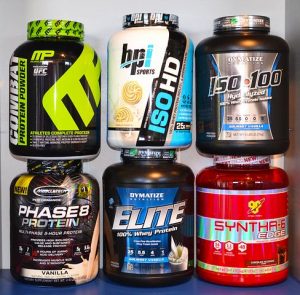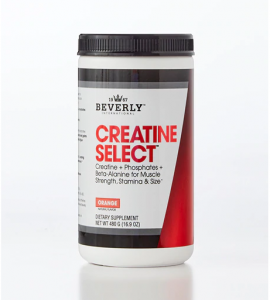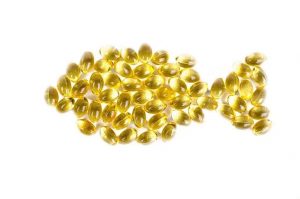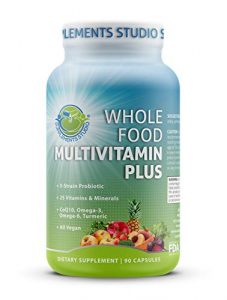This week, Targitfit is pleased to bring you an informative fitness and nutrition article by Linda Moore:

Image via Clean Wal-Mart/Flickr
When you’re embarking on a resistance training regimen, it’s important to remember that to see gains (increased lean mass), you must provide your body with the nutrition that it needs to recover from the strenuous gym sessions involved in weightlifting programs.
Professional bodybuilders will tell you that true strength-training athletes are born in the kitchen, meaning that what they use to supplement their workouts is often even more important for building muscle than exercise itself.
To help you reach your fitness goals, we’ve compiled a list of the top 5 supplements for resistance training along with instructions on how to utilize them for maximum effectiveness.
Protein Powder
 Protein is the building block of muscle, so getting enough of it is absolutely crucial for athletes hoping to gain lean mass. Most resistance training athletes do not get an adequate supply of protein from their diets. While incorporating plenty of lean meat like fish, eggs, nuts, beans, and dairy into your diet is a positive for building muscle, it is not enough for people engaged in serious weightlifting.
Protein is the building block of muscle, so getting enough of it is absolutely crucial for athletes hoping to gain lean mass. Most resistance training athletes do not get an adequate supply of protein from their diets. While incorporating plenty of lean meat like fish, eggs, nuts, beans, and dairy into your diet is a positive for building muscle, it is not enough for people engaged in serious weightlifting.
Although individuals’ protein needs vary, most experts recommend at least 1.3 grams of protein per kilogram of body weight daily to meet the normal protein requirements as well as providing the extra amount needed for recovering muscles.
Creatine
 Creatine is arguably the most well-researched supplement that is proven effective at spurring muscle development. The human body naturally produces creatine in limited amounts, and it is found in dietary sources like chicken as well. However, the small amounts found in a normal diet are likely not enough to produce the results that a supplement can provide.
Creatine is arguably the most well-researched supplement that is proven effective at spurring muscle development. The human body naturally produces creatine in limited amounts, and it is found in dietary sources like chicken as well. However, the small amounts found in a normal diet are likely not enough to produce the results that a supplement can provide.
The vast majority of creatine is stored in muscles. It promotes the production of a special type of molecule called ATP (adenosine triphosphate), which muscle cells use as an energy source.
Creatine is clinically proven to boost both muscle growth and performance in the gym, making it a must-have addition to any post-workout shake.
Branched-Chain Amino Acids
Branched-chain amino acids (BCAAs) are a category of amino acids that include isoleucine, leucine, and valine. These amino acids are considered “essential” because they cannot be produced by the body – yet they are crucial for muscle growth.
Like creatine, BCAAs can be obtained through diet, although not in optimal amounts – making supplementation necessary for anyone who wants to see results.
BCAAs are proven to reduce recovery time between workouts, mitigate fatigue, and prevent the breakdown of muscle tissue.
Fish Oil
 Fish oil is perhaps the most well-known supplement in the world. It contains the specific types of amino acids that provide the biggest performance boost for resistance training are eicosapentaenoic acid (EPA) and docosahexaenoic acid (DHA).
Fish oil is perhaps the most well-known supplement in the world. It contains the specific types of amino acids that provide the biggest performance boost for resistance training are eicosapentaenoic acid (EPA) and docosahexaenoic acid (DHA).
The primary benefit of fish oil for athletes is its mitigation of delayed-onset muscle soreness (DOMS), the familiar feeling of soreness in the muscle groups activated after a gym session that can last several days.
Quicker recovery turnaround time means more opportunity for growing muscles as a result of increased training.
Multivitamin

Image via Janis Jenkins/Flickr
Although multivitamins are often scorned by athletes, high-quality multivitamin supplements can actually deliver impressive benefits for resistance training.
Although less glamorous than other supplements like creatine, a high-quality multivitamin delivers an abundance of important vitamins and minerals that may be lacking in the diet – especially for athletes who require higher amounts.
Final Thoughts
The bottom line is that nutrition and exercise go hand in hand for most health and fitness goals. If you match the dedication that you put into your workouts with the right supplementation, you’ll be in the best possible position to achieve your fitness objectives.
Linda Moore is a lead writer for Suppwise, an evidence-based health and nutrition website. She’s passionate about helping others develop habits that promote a healthy lifestyle.


